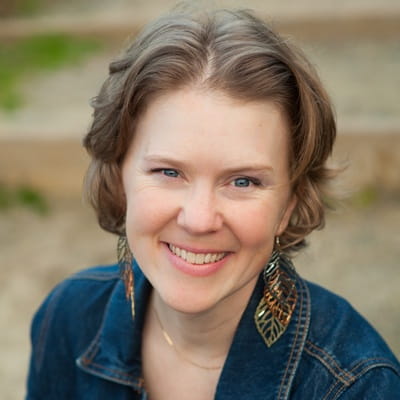
When my friend Amy told me about her impromptu Fourth of July party, I didn’t want her news to be a punch in the gut. Her gathering had been last-minute: four families my husband and I had recently befriended had celebrated with a casual barbeque.
Not knowing our schedule as well as they knew each other’s, they simply assumed we had plans.
But we hadn’t; my little family had spent the Fourth thoroughly miserable. I was so overwhelmed with parenting I’d forgotten the holiday. When it arrived, I felt lame to have no party to attend. I’d spent the day terribly depressed.
After telling me about her weekend, Amy smiled. “So how did you guys celebrate?”
I was so raw with loneliness I started crying.
She was startled, and genuinely sorry when I explained my tears. “Oh, Heather,” she said. “I had no idea. You should have called.”
I thanked her, but inside I felt ashamed. Surely my loneliness meant I was messing up somehow.
Ten years later, I happened across a New York Times essay about how—and why—it's hard to make friends after age 30. Reading the piece, I felt a deep relief. Because though in many ways my social circle has grown more satisfying, I still sometimes feel ‘friendship FOMO’—sure that everyone but me has the kind of community I want.
Back when my kids were born, I assumed my church would magically solve the making-friends problem, especially because I’m deeply rooted in mine. I’ve been in the same fellowship since 7th grade, I’m involved in ministry and a small group, and my kids are active participants in children’s programs. If anyone should feel “plugged in,” it’s me.
But I’ve since realized that my assumptions about friendship were naive. Church can help form community, but it’s no panacea. Not only that, FOMO is all about comparison: any time I compare myself bitterly with others, I come up short.
Here are some insights about community that help me shut down friendship FOMO before it starts.
1. Your Community Is Unique to You
FOMO-type comparisons are deadly precisely because they assume we’re interchangeable with other people. I saw other families gathering in community, and assumed because I did not get invited, there was something wrong with me.
But people aren’t LEGO blocks. My community is unique to me: to my tastes, temperament, likes, dislikes, and history. That lovely group of people had happened upon each other at a particular point in their lives; they had kids about the same age, and interests I didn’t quite share.
Judging myself by their experience was unkind, and not terribly helpful. Later, looking back at that lonely period, I realized that though I genuinely liked all the families, my husband and I didn’t fit that naturally in their group dynamic. It was a lovely community—but it wasn’t mine.
2. Your Community Won’t Always Look Like You Expect
Up until I had kids, my communities looked a lot like that Fourth-of-July gathering. Through school and after, I formed intense friendships in large, fluid groups.
But as I age, my friendships are less and less based on groups. It’s mostly a matter of probability: in a family of four introverts, there’s little statistical likelihood that all of us will enjoy multiple families at once. Sometimes my husband and I won’t click with one of the spouses; sometimes, my kids don’t click with the children. Add in busy schedules, and it’s even less likely that we’ll end up in the kind of community I thought was ‘normal’ in my twenties.
Yes, there are people that achieve large-group togetherness. But not all of us do. Accepting that has relieved a lot of my anxiety.
Worst of all, my naive expectations about community blinded me to the rich friendships I already possessed. I don’t have a big group of friends, but I hold on to the ones I do have—and stay close to them—for years.
That was true even during those years I felt so alone. I just didn’t “count” my friends as community because none of them intersected neatly. My envy displaced my gratitude and left me not only lonely, but ashamed.
3. Friendships Can Be Fragile and Many Change Over Time
Life throws a lot of wrenches into our friendships: marriage, children, moves, and divorces. As William Rawlins, Stocker Professor of Interpersonal Communication at Ohio University put it in this Atlantic article, “Friendships are always susceptible to circumstances.”
I once thought relationships formed in Christ could weather any storm, and felt terrible myself when life changes meant distance. But I’ve seen that even in the church, changing circumstances move friendships to mere acquaintance more often than I’d like.
4. Community is Counter-Cultural, So Expect it to be Hard
Realism doesn’t feel hopeful, but given the state of friendships in the US, it’s terribly necessary. Fortunereportsthat in 2010, an AARP study found nearly 45% of adults felt lonely. The same article also asserted that social isolation is on the rise. By some measures, the rate of loneliness has gone up 20% in the last twenty years.
Though I wish friendship were easier in America, realism frees me. Most adults my age struggle with loneliness. Oddly enough, we’re all in the same boat…by ourselves.
Though church isn’t a panacea against loneliness, the evidence shows that those who participate in religious life experience, on average, less loneliness. I felt defective for years without realizing I was actually lucky.
It helps me put my aloneness in perspective to realize any community I do experience is counter-cultural. I feel grateful that God’s people gather, against all odds.
5. Given Your Context, You Can Be Intentional and Gracious
The biggest force that has isolated me from others is shame. Shame about not being popular, shame about my introversion, shame about how I’m ‘missing out.’ But given my culture, temperament, and relative good fortune, the voice of shame is a wicked lie.
It’s a lot easier to connect with people when my expectations are realistic, and when I don’t assume I’m unlikable.
That change in how I view my community means a new perspective. I see that when I reach out to others, I work against our culture’s loneliness. I’ve taken to putting reminders on my phone to call people and plan gatherings. When friendship FOMO rears its ugly head, I stop and mentally remind myself that friendship is a challenge for all of us.
If I want to be included more, I can give people a call. I can be the person that plans the party, reaches out to the isolated, and throws open my doors. When intention fails—as it sometimes does—I can ask God for help in my loneliness.
Most of all, I need to practice hospitality with myself. Have I treated myself kindly? Have I asked God to help me be content in all situations? Have I avoided blaming myself for forces beyond my control?
Extending gracious welcome to myself and other people is the best antidote to friendship FOMO. Facing reality while rooted in deep gratitude and hope, I am learning to practice community with my head held high.
Image Credit: Unsplash.com








